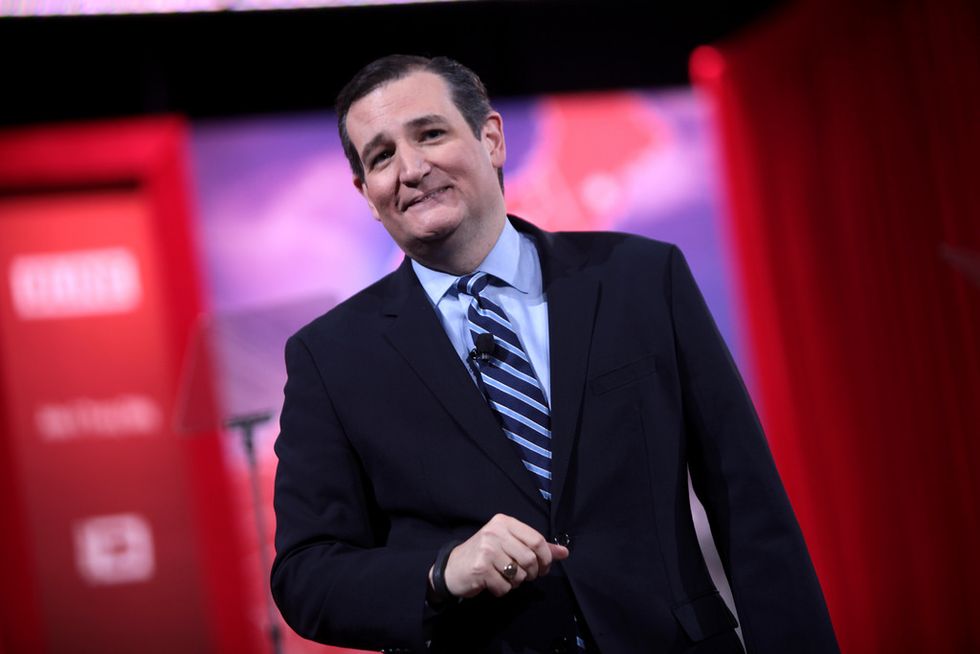Here's How Christine Blasey Ford's Accusation Against Brett Kavanaugh Could Impact These 4 Republican Senators Running for Reelection


Christine Blasey Ford, the 51-year-old Palo Alto University psychology professor who has accused Judge Brett Kavanaugh of attempting to rape her at a party when they were teenagers back in 1982, has requested a full FBI investigation of her allegations. But despite the fact that Ford is willing to subject herself to intense FBI scrutiny, Republicans in the U.S. Senate are trying to portray her as nothing more than a partisan tool of the Democratic Party. And Republican senators like Iowa’s Chuck Grassley (chairman of the Senate Judiciary Committee), Utah’s Orrin Hatch and South Carolina’s Lindsey Graham have no interest in an FBI investigation—if Ford doesn’t testify before the Senate this Monday, September 24, they are determined to proceed with a vote on Kavanaugh without her testimony. And if Senate Republicans successfully ram Kavanaugh’s confirmation through without Ford’s testimony or an FBI investigation, some of them could pay a price politically in the 2018 midterms—especially in swing states.
On the other hand, GOP senators seeking reelection in red states could rally their base by voting for Kavanaugh. But not all Republicans want to see the nomination rammed through. CNN contributor Ana Navarro, an outspoken NeverTrump Republican, has asserted that Ford’s allegations deserve a thorough FBI investigation so that Kavanaugh, if confirmed, will not have the stigma of alleged sexual abuse surrounding him.
Here are four Republican senators who are seeking reelection in 2018 and could be affected, in different ways, by Ford’s allegations and a vote for or against Kavanaugh.
1. Dean Heller
Of all the Republican senators who are seeking reelection in 2018, Nevada’s Dean Heller is in the toughest position where Kavanaugh is concerned. Heller is being challenged by Democratic nominee Jacky Rosen, and polls have shown the race to be a dead heat; some recent polls have shown Heller slightly ahead, while others have shown Rosen slightly ahead. Heller is under enormous pressure from his party to vote for Kavanaugh, and he seems unfazed by Ford’s accusation (which he described as a “little hiccup”). The chances of Heller voting against Kavanaugh are slim and none, especially in light of the fact that President Donald Trump has been campaigning and fundraising for him. But Nevada is a swing state that Hillary Clinton won in 2016, and the last thing Heller needs going into November is being painted as someone who doesn’t take sexual abuse allegations seriously. A vote for Kavanaugh might spare Heller the wrath of Trump and Senate Majority Leader Mitch McConnell, but it could also swing the Nevada Senate race in Rosen’s direction.
2. Ted Cruz
Responding to Ford’s allegations against Kavanaugh, Texas Sen. Ted Cruz has tried to appear even-handed—saying that her allegations need to be treated “in a way that is fair to both the individual making the accusation and the judge himself.” Cruz, a far-right social conservative, will no doubt vote for Kavanaugh; not doing so would infuriate his white evangelical wingnut base. But even in a state as Republican as Texas, Cruz doesn’t want to come across as someone who is attacking an alleged victim of attempted sexual assault. And Cruz is nervous about the battle he is getting from Democratic senatorial nominee Beto O’Rourke, who has been performing shockingly well in polls. Most recent polls have shown Cruz slightly ahead, but an Ipsos/Reuters poll released on September 19 found O’Rourke leading by 2%.
3. Deb Fischer
In Nebraska, incumbent Republican Sen. Deb Fischer is seeking a second term and is being challenged by Democrat Jane Raybould (a city councilwoman in Lincoln City). Fischer has the advantage in this race. Nebraska is heavily Republican—much more so than neighboring Iowa, a swing state—and in 2012, Fischer defeated Democrat Bob Kerrey (Nebraska’s former governor) by 16%. Trump won Nebraska by 25% in 2016, and he has had higher approval ratings in Nebraska than he does nationally. Knowing all that, Fischer is almost certain to vote for Kavanaugh regardless of Ford’s accusation. And given how deeply Republican the state is, it’s unlikely that Raybould could use a pro-Kavanaugh vote to defeat Fischer in November.
4. Cindy Hyde-Smith
Of the six female Republicans in the U.S. Senate, only two of them—Fischer and Mississippi’s Cindy Hyde-Smith—are up for reelection (Maine’s Susan Collins, Alaska’s Lisa Murkowski, Iowa’s Joni Ernst and West Virginia’s Shelley Moore Capito don’t have to worry about being voted out of office in 2018). Hyde-Smith was appointed to the U.S. Senate by Gov. Phil Bryant in April of this year after Thad Cochran’s resignation due to health problems. And on November 6, Mississippi will have a special election, with Hyde-Smith up against fellow Republican Chris McDaniel (a Tea Party extremist) and Democrat Mike Espy. Hyde-Smith is right-wing, but McDaniel is even further to the right—and if Hyde-Smith voted against Kavanaugh, McDaniel and other Mississippi Republicans would probably use that vote to paint her as a RINO (Republican In Name Only).